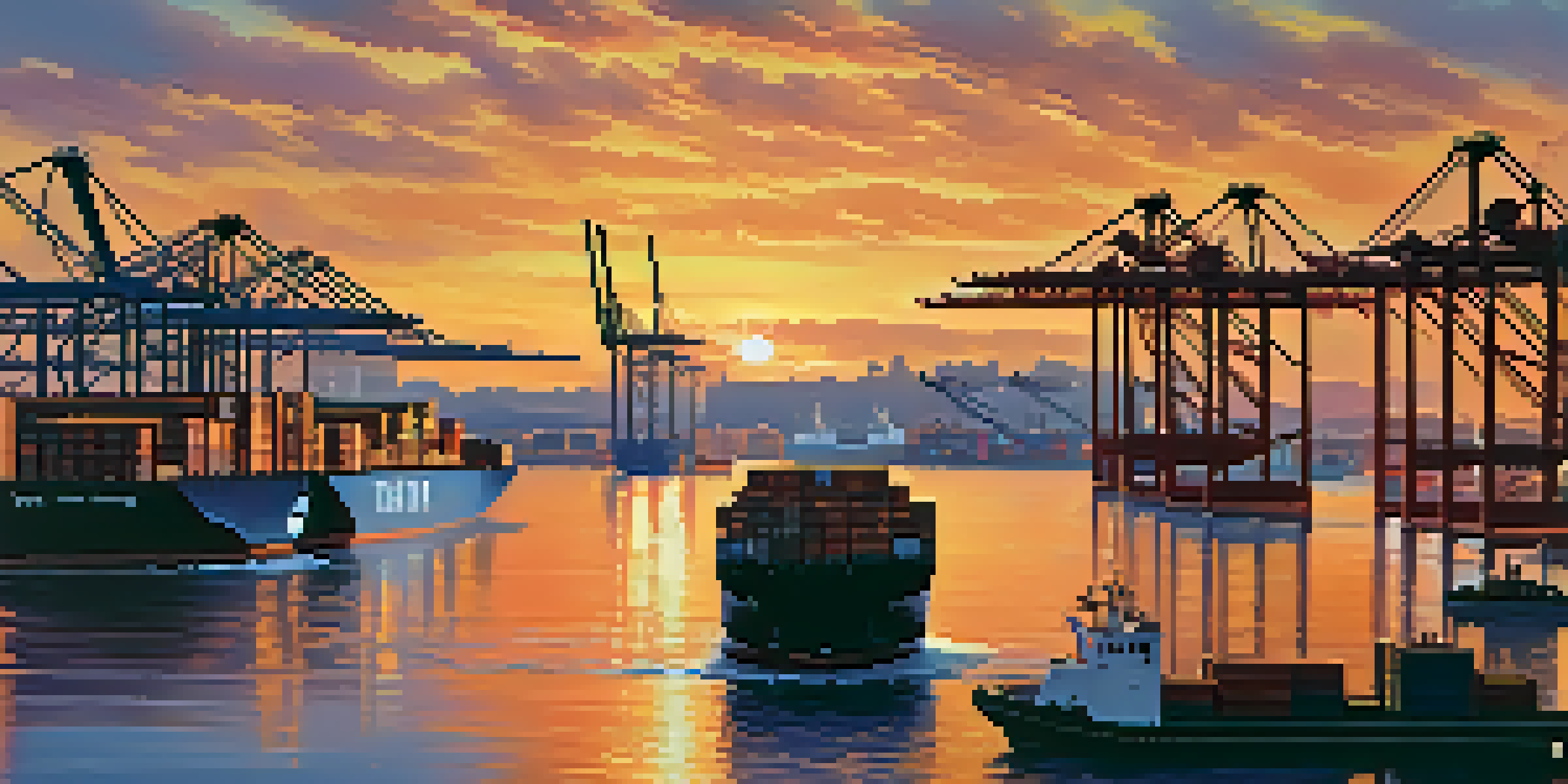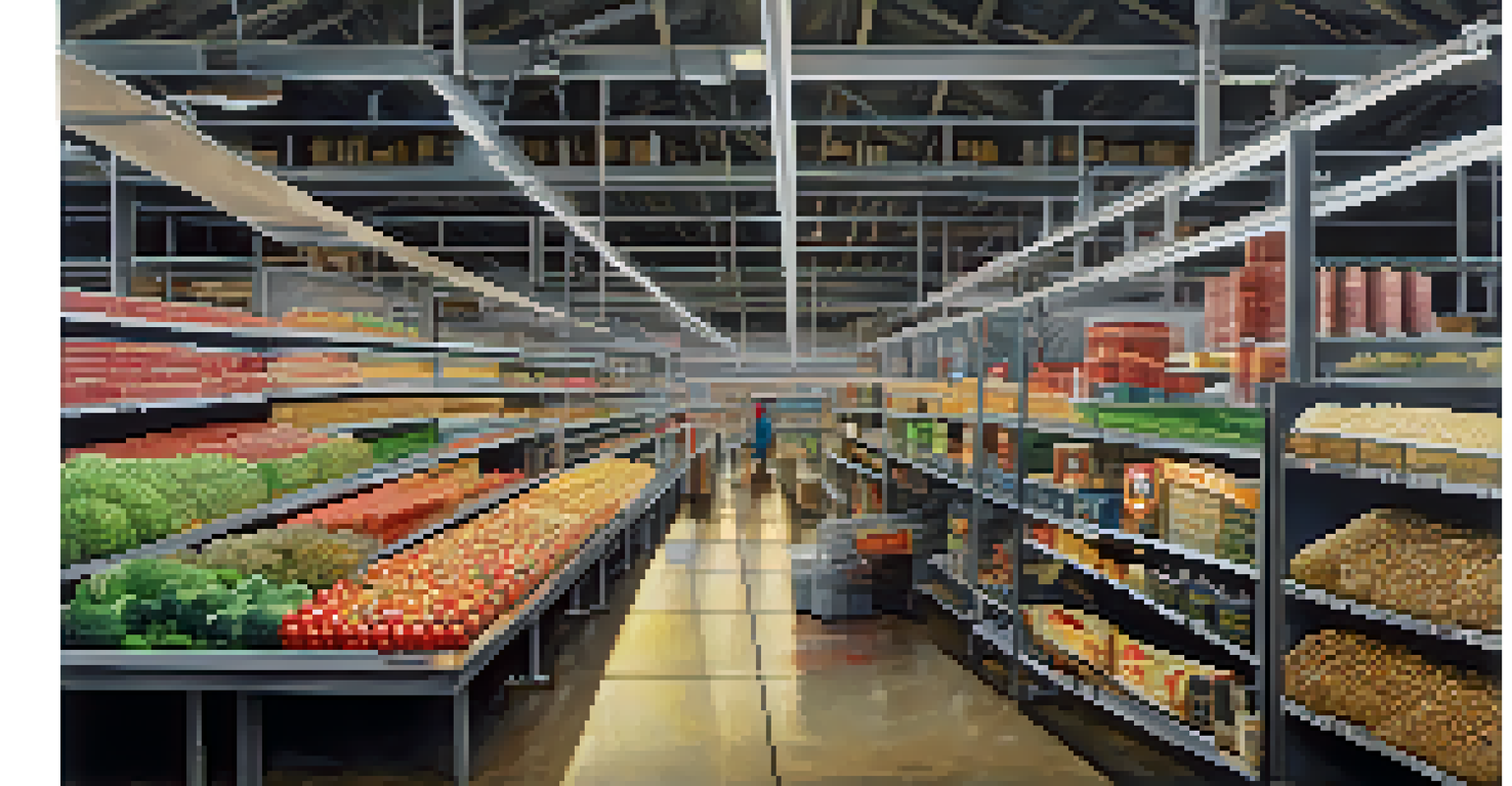Navigating Trade Wars: Impacts on International Businesses

What Are Trade Wars and Their Causes?
Trade wars occur when countries impose tariffs or other trade barriers against each other, often in retaliation for perceived unfair trade practices. For example, if one country raises tariffs on another's goods, the affected country may respond similarly, leading to escalating tensions. These conflicts can arise from various issues, including trade imbalances, intellectual property theft, and domestic political pressures.
In trade wars, everyone is a loser. The world economy is interdependent, and we must work together to resolve our differences rather than escalate them.
The causes of trade wars can often be traced to economic policies that prioritize national interests over global collaboration. Governments may believe that protecting local industries will safeguard jobs and bolster the economy. However, this short-sighted approach can lead to retaliation and a cycle of escalating tariffs that ultimately harms consumers and businesses alike.
In essence, trade wars are complex phenomena driven by economics, politics, and international relations. Understanding their roots is crucial for international businesses to navigate the turbulent waters of global trade.
Immediate Effects on Supply Chains
One of the most immediate impacts of trade wars is the disruption of supply chains. Companies that rely on importing materials or exporting finished products often face increased costs due to tariffs. For instance, a manufacturer that sources parts from a country facing high tariffs may see its production costs soar, leading to higher prices for consumers.

Additionally, businesses might have to rethink their supply chain strategies entirely, seeking alternative suppliers in countries that are not affected by tariffs. This shift can be time-consuming and expensive, as it often requires renegotiating contracts and establishing new partnerships. Moreover, the uncertainty surrounding trade policies can make long-term planning difficult.
Trade Wars Disrupt Supply Chains
Trade wars lead to increased tariffs, causing companies to face higher production costs and necessitating a reevaluation of their supply chain strategies.
Ultimately, companies must remain agile and responsive to the changing landscape of international trade. By diversifying their supply chains and exploring new markets, they can mitigate the risks associated with trade wars.
Long-Term Impacts on Global Markets
While the immediate effects of trade wars are often felt quickly, the long-term implications can be profound. Prolonged trade tensions can lead to reduced economic growth and increased volatility in global markets. For example, businesses may become hesitant to invest in new projects or expand operations due to uncertainty about future trade policies.
Trade wars are not just about tariffs. They represent a broader struggle for economic dominance and influence over markets.
This hesitance can stifle innovation and slow down economic progress, impacting not just the countries involved in the trade war but also their global partners. Companies may find it challenging to predict market trends, leading to cautious strategies that prioritize risk aversion over growth.
In this context, understanding the broader economic landscape becomes essential for businesses looking to thrive. By keeping an eye on international relations and market responses, they can make informed decisions that help navigate these turbulent waters.
Strategies for Businesses to Adapt
To survive and thrive during trade wars, businesses must adopt flexible strategies. This could involve diversifying their product lines or sourcing materials from multiple countries to minimize risk. For instance, a tech company might consider sourcing components from various suppliers to avoid being overly reliant on any single market.
Another effective strategy is to invest in market research to better understand consumer behavior and preferences. By staying attuned to changes in demand, businesses can adapt their offerings to meet evolving needs, even in a challenging trade environment. This adaptability can provide a competitive edge during uncertain times.
Long-Term Effects on Global Markets
Prolonged trade tensions can diminish economic growth and create uncertainty, making businesses hesitant to invest and innovate.
Ultimately, the ability to pivot and make data-driven decisions will be crucial for businesses operating in the global marketplace. By fostering a culture of adaptability and resilience, companies can better withstand the pressures of trade wars.
The Role of Government Policies
Government policies play a pivotal role in shaping the landscape of international trade. During trade wars, governments may implement tariffs, quotas, or subsidies that directly impact businesses. These policies can create a challenging environment where companies must navigate a maze of regulations and compliance requirements.
However, governments can also provide support to affected industries through financial assistance or trade promotion initiatives. For instance, they may offer grants to businesses seeking to explore new markets or develop innovative products. This support can help mitigate some of the negative effects of trade wars and foster economic resilience.
Understanding the interplay between business and government is essential for navigating trade wars successfully. By staying informed about policy changes and engaging with policymakers, businesses can better prepare for the challenges ahead.
Consumer Behavior During Trade Wars
Trade wars often lead to shifts in consumer behavior, as people become more price-sensitive and selective about their purchases. When tariffs increase prices on imported goods, consumers may seek alternatives, opting for domestically produced items instead. This shift can have a significant impact on businesses that rely heavily on imports.
Moreover, trade wars can create uncertainty, leading consumers to delay purchases or hold off on big-ticket items. For example, if someone is considering buying a new car but hears about rising tariffs on imported vehicles, they may choose to wait. This consumer hesitancy can further exacerbate the economic fallout of trade conflicts.
Adaptability is Key for Businesses
To thrive during trade wars, businesses must adopt flexible strategies, such as diversifying suppliers and understanding consumer behavior.
Businesses need to stay attuned to these changing consumer sentiments and adjust their marketing strategies accordingly. By emphasizing value and quality, they can appeal to consumers looking for the best deals during uncertain times.
Future Outlook: Trade Wars and Globalization
As we look to the future, the relationship between trade wars and globalization remains complex. While trade wars may seem to promote domestic production, they can also hinder the interconnectedness that has long characterized the global economy. Many experts argue that a return to protectionist policies could stifle innovation and growth in the long run.
On the other hand, some industries may benefit from a focus on local production and sourcing, as it can lead to job creation and economic stability. This duality suggests that businesses must carefully consider their strategies in light of both global trends and local dynamics. They may need to strike a balance between global engagement and local responsiveness.

Ultimately, the future of trade relations will likely involve both cooperation and conflict. By staying informed and adaptable, businesses can navigate this evolving landscape and seize opportunities as they arise.